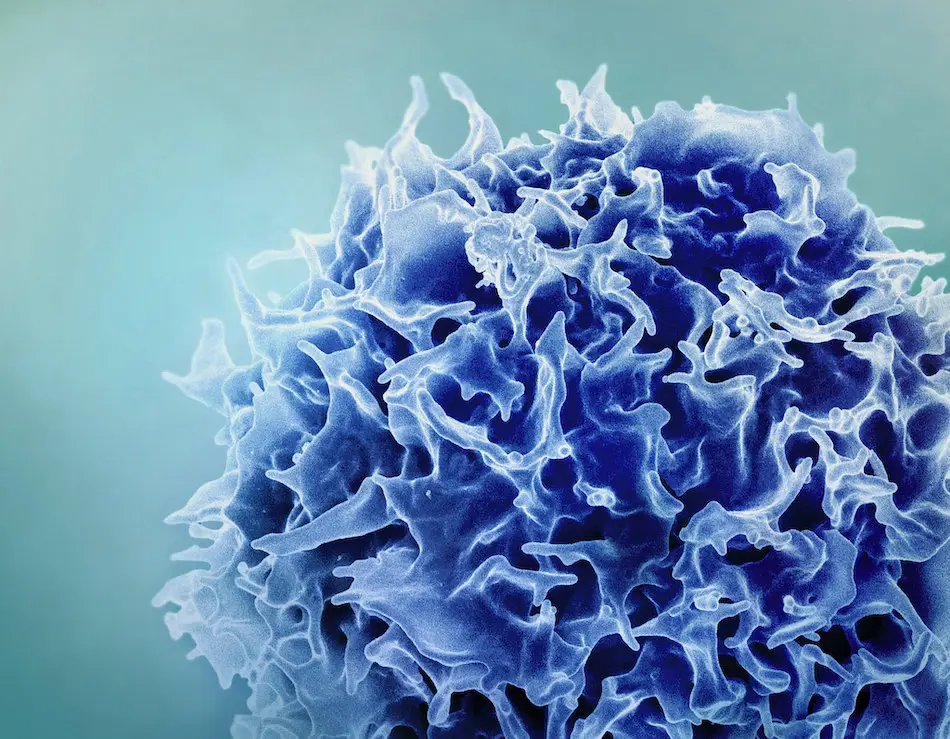Hilde Cheroutre, Ph.D., and her team are studying the development, function, and regulation of white blood cells, a type of T lymphocytes. The laboratory is investigating how the immune system provides protection at “interfaces,” or places where the outside world comes in contact with the inside of the body, such as skin, lungs, mouth, and the largest surface of all, the intestine.
Studying how the immune system works in the intestine is of particular interest because the immune system has to be able to distinguish pathogenic antigens from harmless food peptides and bacteria. The laboratory is investigating how the immune system succeeds in differentiating between the two and what causes the system to fail, allowing the antigens to invade the body.
The lab’s research has been expanded to studying immune memory cells that resist re-entering pathogens or cancer cells. Tumor cells produce tumor antigens, which are cell surface proteins that differ from the proteins expressed by the surrounding normal cells. White blood cells recognize and destroy these transformed cells. Some of these tumor-fighting white blood cells go on to become immune memory cells. These are long-lived cells that activate immediately when they re-encounter tumor antigens, in the case of metastasis or re-occurrence of the tumor.
Understanding the function of immune memory T cells will help in the development and improvement of effective vaccines. At the same time, the ability to specifically eliminate these cells is a key requirement in the therapeutic intervention against autoimmune diseases and the rejection and/or destruction of host tissue following transplantation.





